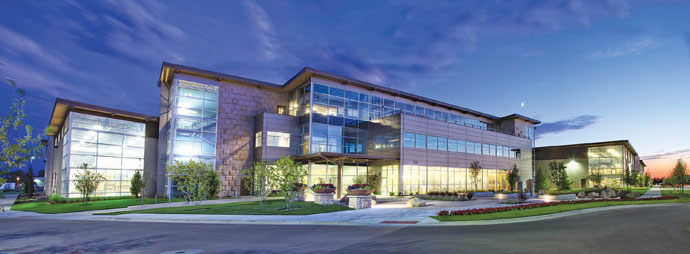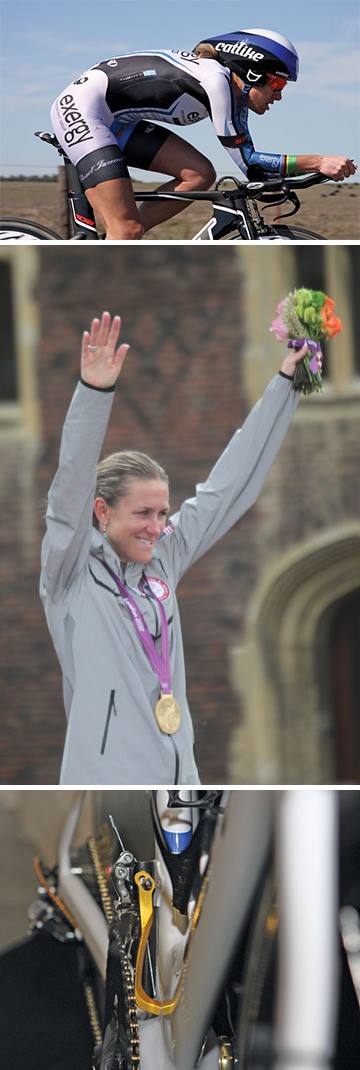Idaho Gov. C.L. “Butch” Otter says he had two primary goals when he came into office in 2007: Grow the state’s economy and streamline state government.
Six years later, the governor says, the mission has been largely accomplished.
“Our economy was roughly $51 billion when I became the governor,” Otter tells Site Selection. “My goal was to drive our economy to $60 billion in our state. We are up to $57.9 billion GDP in our state economy right now.”
On making government more efficient, he says, “we cut back on a lot of what was not necessary. Our first budget in 2007 was $3.2 billion. Two years ago, our budget was almost $1 billion less than that. We continued to balance our budget for the last six years without raising any new taxes. This last legislative session, we gave about $100 million in tax relief in the form of tax relief on food and corporate and personal income tax relief. We hope that becomes a trend.”
According to Jeff Sayer, director of the Idaho Department of Commerce, “we are seeing growth in our economy across many sectors. We are seeing a surge in manufacturing, and a lot of that is occurring in the food-processing sector. The most high-profile win was the Chobani yogurt company, which now has close to 1 million square feet [92,900 sq. m.] of plant space in Twin Falls.”
The governor says Idaho is reaping more industrial plant expansions now because “our advantage in manufacturing is our ability to add value to raw material. We turn silicon sand into computer chips, potatoes into French fries, and milk into yogurt. And we have very low industrial electricity prices.”
The media, as well as the corporate world, have taken notice. MSNBC.com named Idaho the No. 1 Most Improved State for Business in 2012. The Kauffman Foundation/Thumbtack.com named Idaho the No. 1 Most Friendly State for Small Business; and CNNMoney.com named Idaho the No. 6 Most Inventive State.
The honors and accolades keep coming, but the governor says he is far more concerned with landing good projects.
“You really cannot run government like a business, but you can bring business principles to government,” Otter says. “That is what business leaders are looking for in a state. So the first thing we ask ourselves is ‘What is the cost versus the benefit of what we are doing in state government?’ “
Increased investment in international trade is a focal point of Otter’s administration. “As lieutenant governor in 1987, one of my first jobs was to develop international trade,” he notes. “Our total amount of international trade back then was $700 million. It now exceeds $5.9 billion a year.”
Evidence of the governor’s economic development groundwork can be seen in markets around the state.
Chobani celebrated the grand opening of the world’s largest yogurt plant in Twin Falls on Dec. 17. The $450-million plant sits on 200 acres (81 hectares) and took 326 days and over 1.7 million man-hours to build.
“We chose Twin Falls due to its abundant milk supply, skilled labor force and tight-knit local community,” said Hamdi Ulukaya, CEO and founder of Chobani.
Cives Steel Company announced a $10-million steel plant investment in Idaho Falls. The three-phase project will encompass 115,000 sq. ft. (10,684 sq. m.) and add 150 jobs.

Scentsy sprung from humble origins as a small candle maker to become a global company with more than 600,000 sq. ft. (55,740 sq. m.) in Boise.
“Idaho Falls gives us good proximity to our target market,” says Thomas Farr, manager of business development for Cives. “There is an available talented work force, necessary services and transportation infrastructure. Access to rail service was our most important criterion for a specific site, and the livability of the area rated very high.”
Farr says Cives considered sites throughout Idaho, Wyoming, Utah and Montana before selecting Idaho Falls. “Local economic development officials were very helpful in identifying local properties and providing contacts with utilities, service providers and local officials,” he says. “At the state level, once incentive funds were identified, they were helpful in processing those funds.”
Orville Thompson, owner and CEO of Scentsy, says his candle, fragrance and household products manufacturing and distribution company will have 603,000 sq. ft. (56,019 sq. m.) of plant space on its Boise campus by the end of 2013.
“We bought a 40-year-old complex of buildings in 2010 and we have been building ever since,” he says. “We are building our new corporate office tower now. We have 1,100 employees in three states — Idaho, Texas and Kentucky — but the vast majority of them are right here in Boise.”
Thompson says he and his wife decided to build their company in Idaho because “there is a level of optimism with people in Boise that I don’t see in other places. There is a sense of upward mobility that is endemic to the Treasure Valley. It is a seedbed for entrepreneurship — good folks who are trying to make a difference in the world and doing it responsibly. I am proud to be living in Idaho and raising my family here. I am proud to be developing the economy where I live first.”
Smaller firms are also finding fertile ground for growth in Idaho. Justin Evans, CEO of Guardian Survival Gear, a wholesaler of emergency survival kits and equipment, moved his main warehouse to Boise and has expansion plans that could triple his company’s labor force in the next few years.
“We relocated our warehouse from Utah and our corporate office from Southern California,” says Evans, who became CEO in April 2012. “My plan was to move the company back to my hometown of Las Vegas or back to California, but then we were welcomed to Boise with open arms. We were overwhelmed by the support here.”
Evans says the firm looked at tax incentives, business law and the overall business climate of Nevada, California and Idaho before choosing Boise.
The company plans to hire about 20 employees this year but could soon expand that work force. “The Boise work force is full of talented people who come from all different walks of life,” Evans says. “They are very hard workers and they are very interested in our industry.”
Joe Savola, founder and owner of K-EDGE, a high-end bicycle components manufacturer, says his firm has a pretty big reason for choosing to grow in Boise. His wife, two-time Olympic cycling gold medalist Kristin Armstrong, loves riding her bike through the scenic vistas and challenging terrain of Idaho.
“We launched the company in May 2009 with a website and started taking orders,” Savola says. “Today we make components for the USA Cycling Team and many of the top professional racing teams in the world.” Savola says the Boise location gives his firm a competitive advantage. “We have great engineers at Boise State,” he notes. “We have Micron and HP. Boise has a wealth of resources due to these bigger companies coming in and bringing new people.”
Boise also paid off for Kristin, as her gold medals from Beijing and London attest. “She says that this is her community and she loves the wonderful, small-town environment and beautiful weather,” Savola says. “This is where we want to be.”
